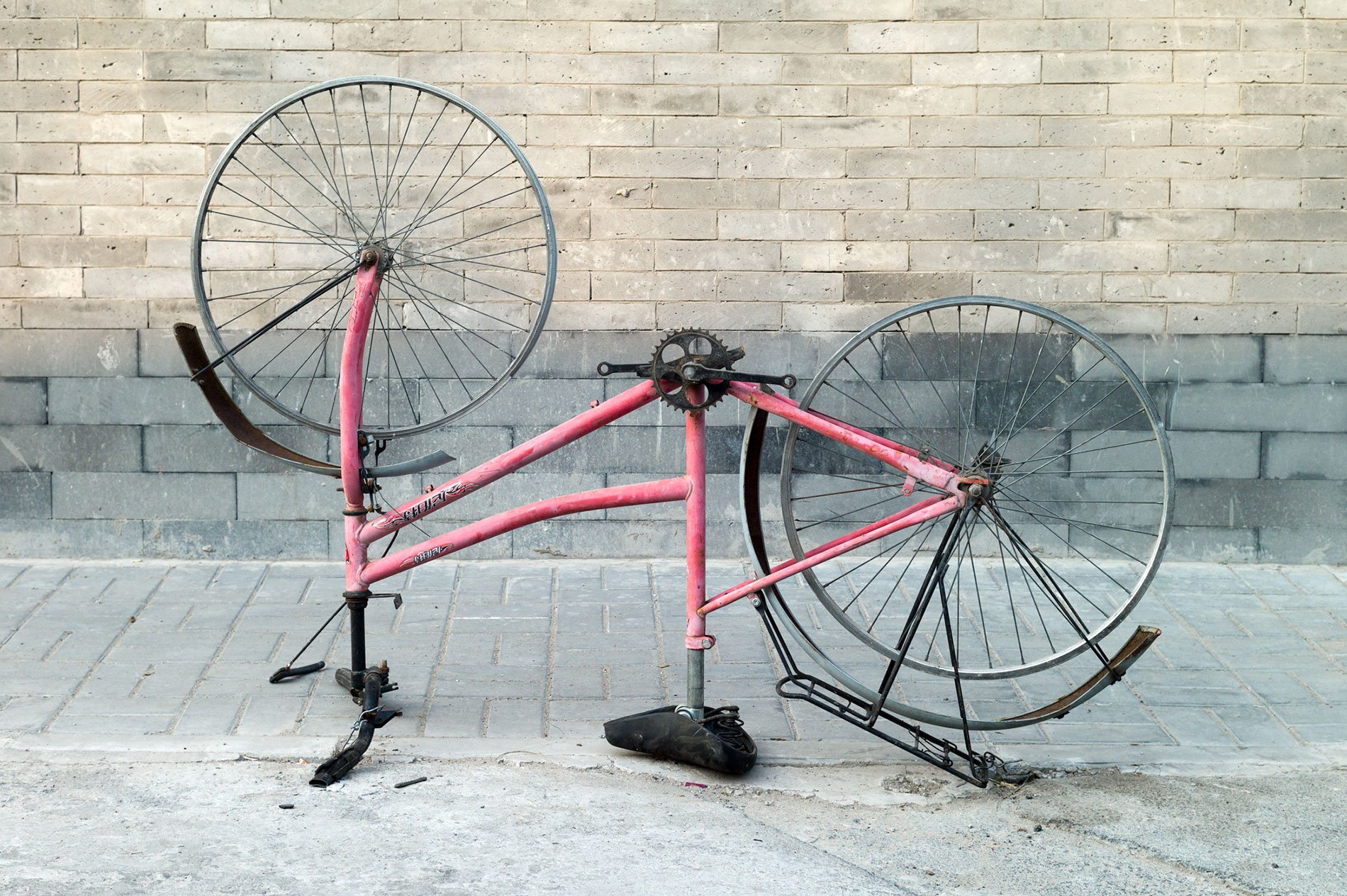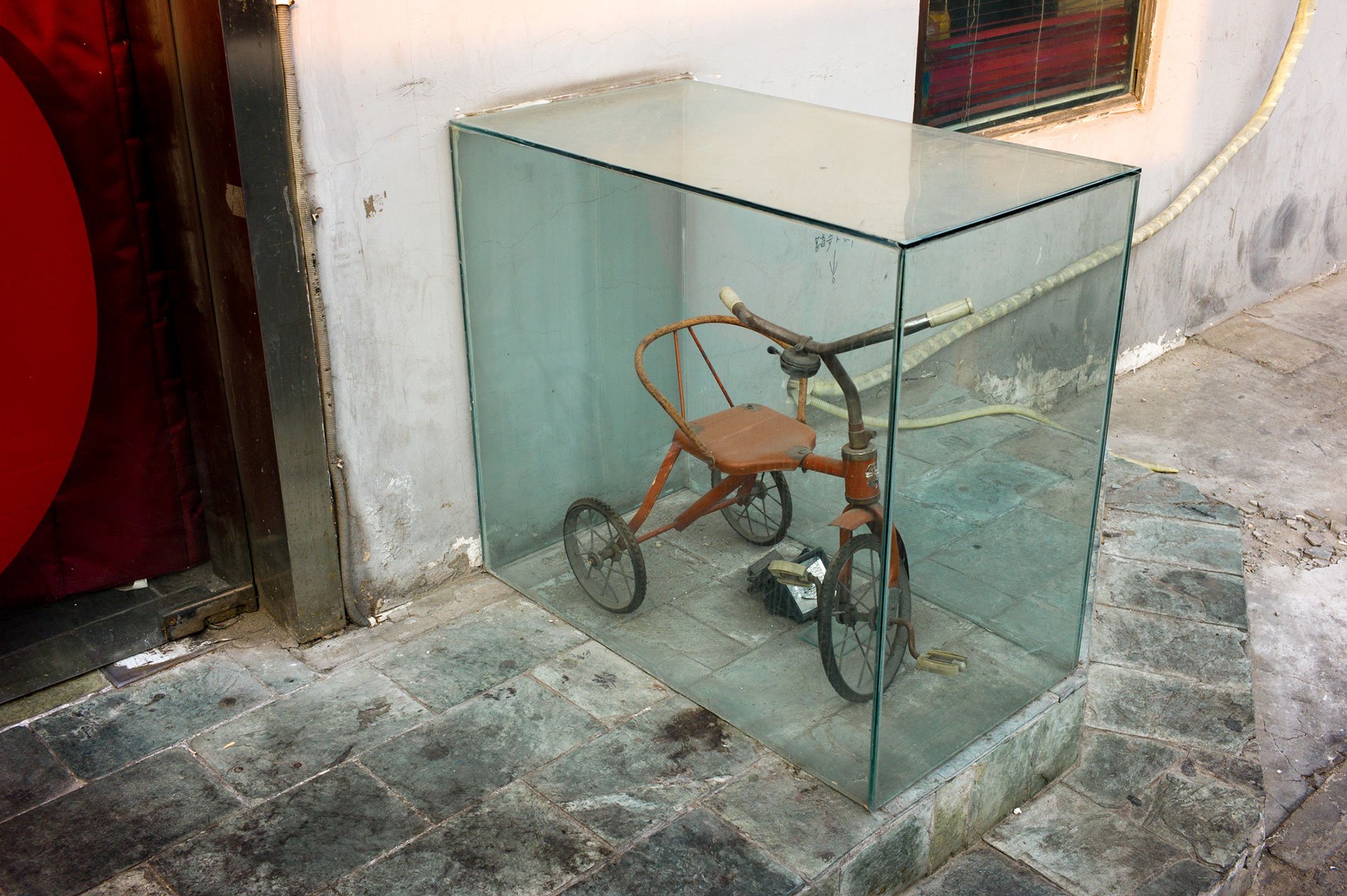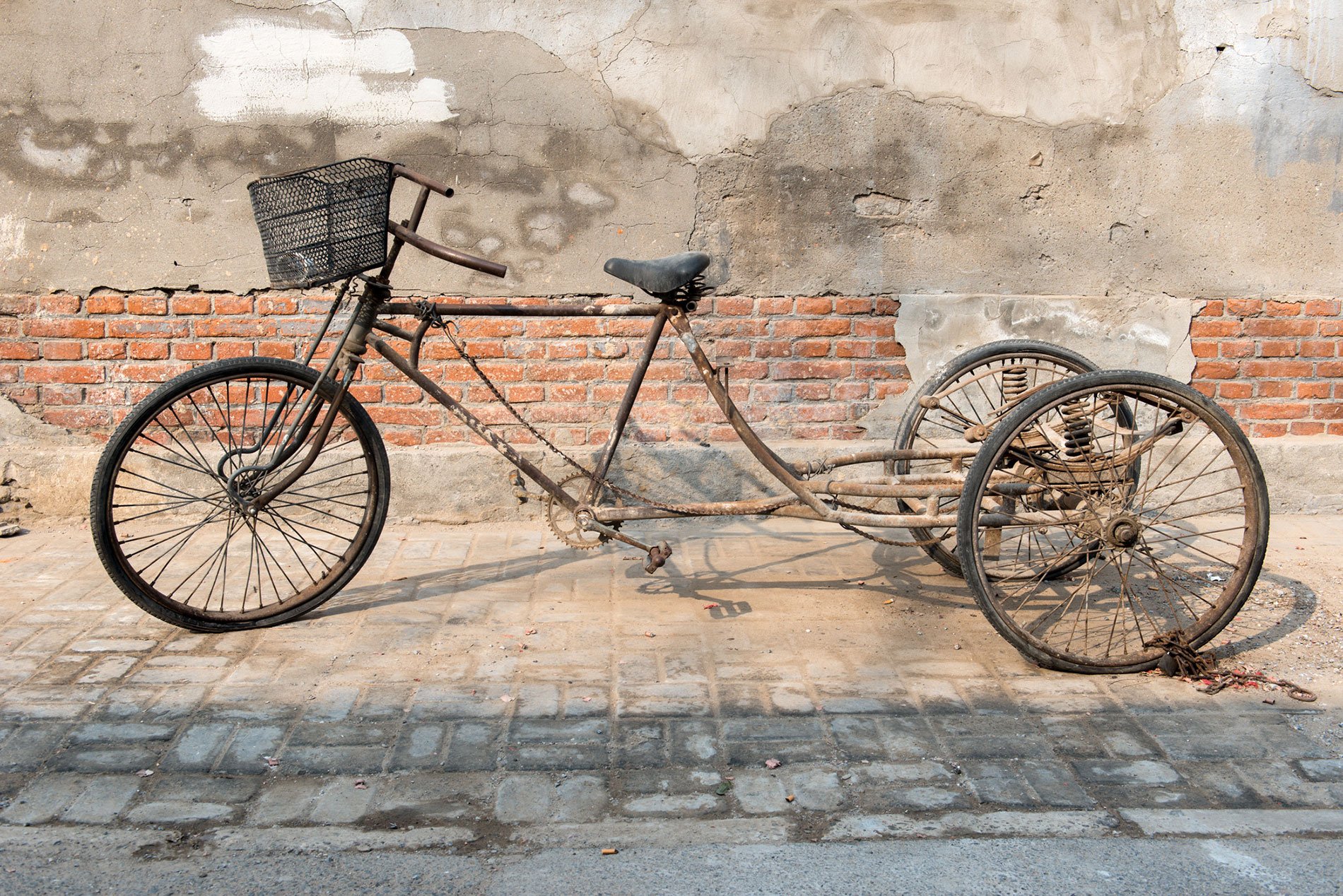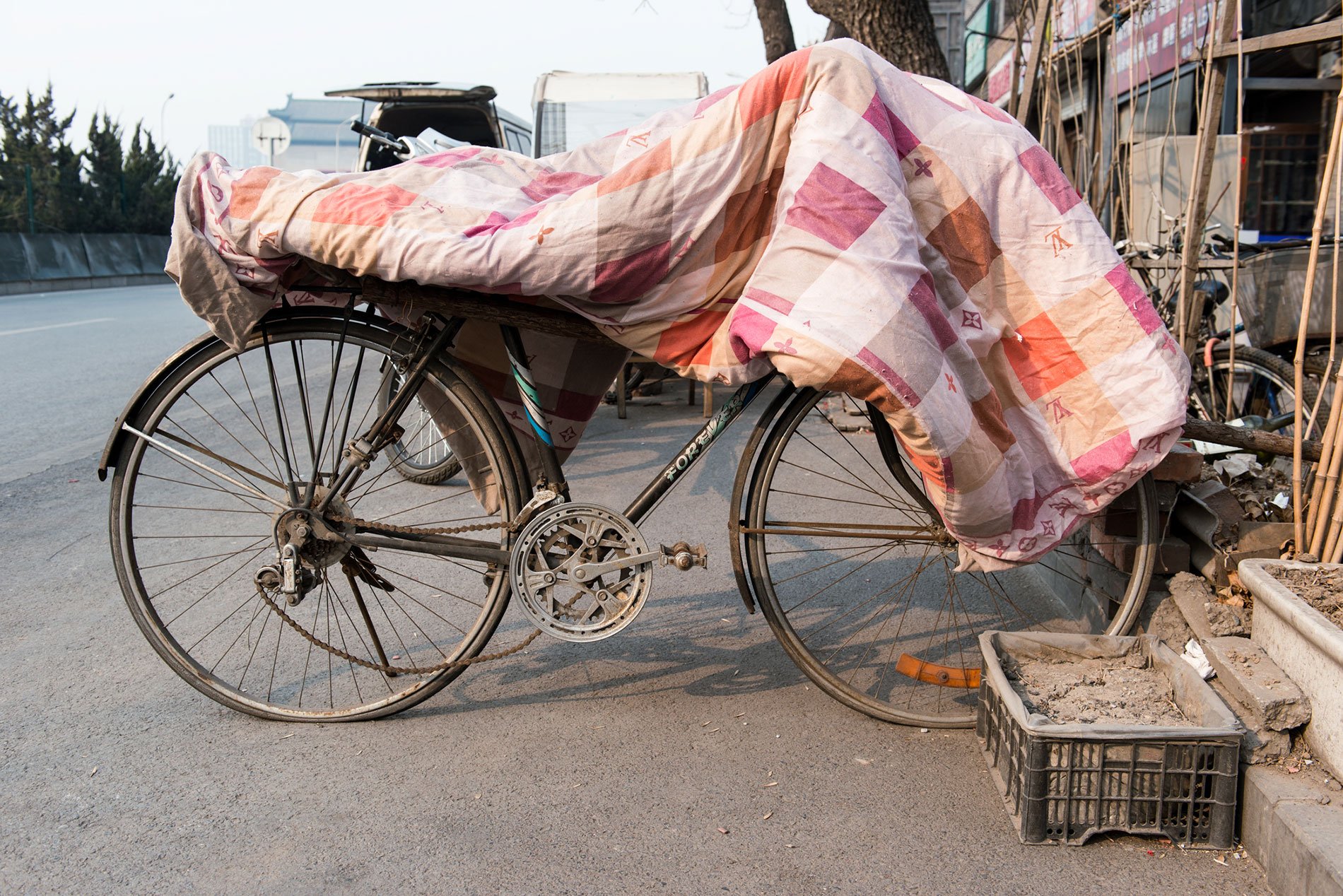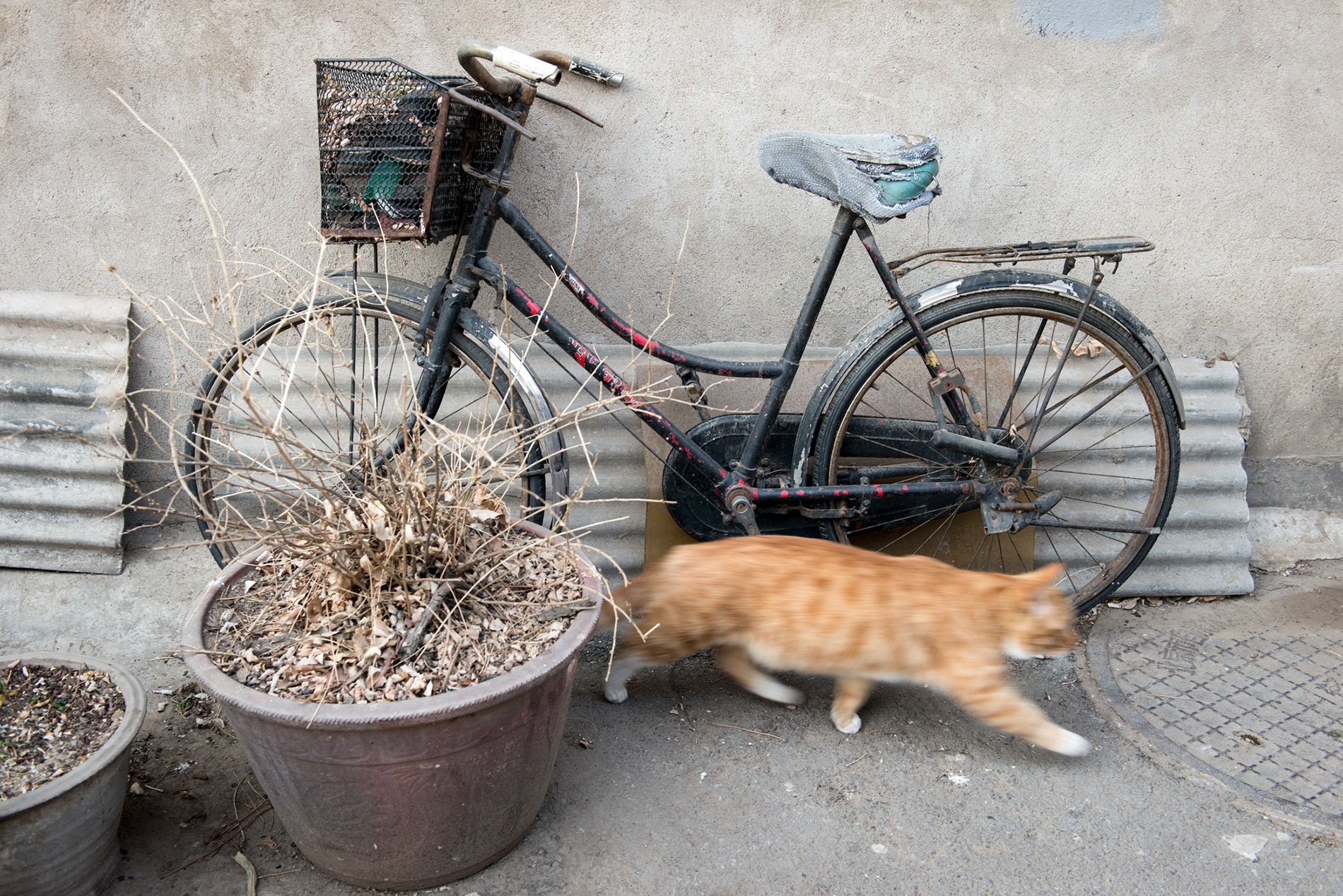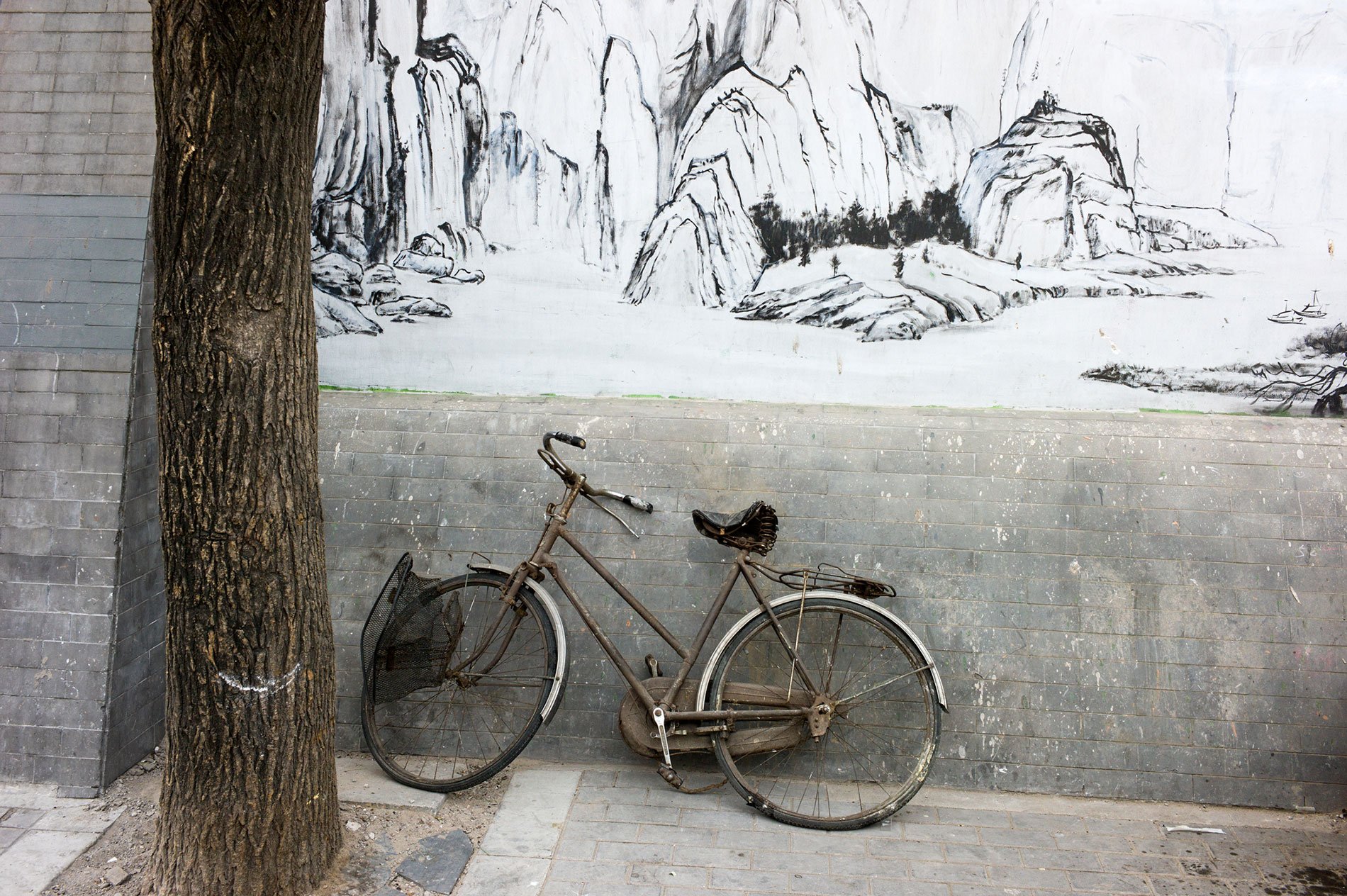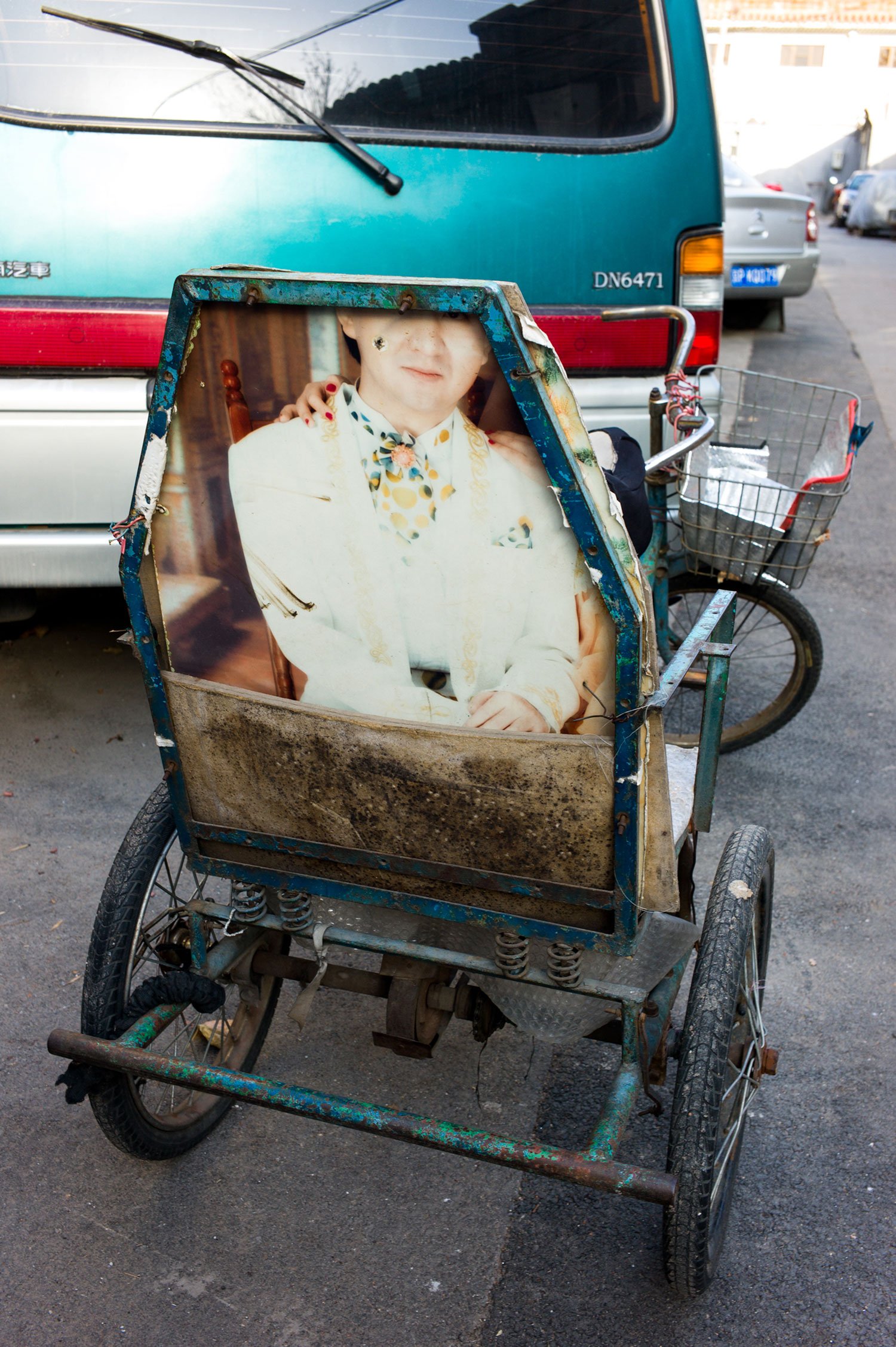Once known as the “Kindom of the Bicycles,” China has been quick to adopt the more convenient and comfortable car as its primary mode of transportation. Photographer Xiaomeng Zhao harkens back to the days when the bicycle was iconic, a cherished cultural symbol that spanned generations; with his series Bicycles in Beijing, Now, he attempts to capture the marginalization of bicycles as allegory for a dramatically shifting Chinese society in which cycling is associated with the poor and vulnerable. The images are a result of his search for these humble, formerly dependable machines. Many are abandoned, dilapitaed and worn, symbolic of what Zhao views as a decadance within the city’s culture; the once “proud” bicycles lay in rusty piles, stand chained permanently to the bars of windows, and are scattered relics along the road. Zhao remarks that some bike owners kept their obsolete vehicles with the belief that “Maybe one day I’ll make use of it” – reminiscent of the old Beijing saying, “a dog’s life is better than no life.” In spite of his simple compositional approach, his beautifully crafted series captures this powerful sentiment that the bicycles are no longer vehicles for transportation, but are vehicles for memory: “witnesses and victims” of a country in transition. Read more on Zhao’s website.
Images courtesy of Xiaomeng Zhao


